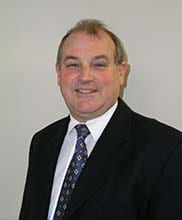Jim Lawless

Jim is currently an independent consultant and a director of Polaris Infrastructure which has renewable energy projects in Nicaragua and other Latin American countries. This builds on a previous role to the end of 2010 as Geothermal Resources Practice Leader for Sinclair Knight Merz (now part of Jacobs Engineering). He has been President of the New Zealand Geothermal Association, on the Board of the International Geothermal Association and founding Chairman of the Western Pacific Regional Branch thereof. During his 29 years with SKM and predecessor companies. he played a major part in most of the company’s geothermal projects worldwide. He also maintained an interest in mineral exploration. This has been of assistance in him taking the lead technical role in developing and administering the Australian Geothermal Reporting Code for Resources and Reserves.
With a background of 35 years international experience in geoscience, he has in recent years taken a key role in promoting the appropriate development of geothermal energy in South East Asia, especially Indonesia, with assignments for NZ MFAT, the World Bank and the UK government. Starting in 2011, he has helped guide MFAT’s policy in renewable energy development in Indonesia.
Abstract
The 10 25 55 (And Counting) Most Common Mistakes in Geothermal Development
Jim Lawless, Lawless Geo-Consulting, Auckland, New Zealand
Jim Randle, GT Management, Jakarta, Indonesia
Phil White, Panda Geoscience, Taupo, New Zealand
Although geothermal development worldwide is a success story, there have also been sub-optimal results. A number of common themes have been observed. The most important over-arching reason for failure (other than simply poor quality resources) appear to be: (1) lack of communication between scientific disciplines and between the resource and engineering design teams, (2) failure to maintain flexibility, updating and changing working assumptions as the project progresses, (3) lack of recognition of the requirements of long term operation of a successful project such as operability and steam quality, and (4) lack of recognition that geothermal development is fundamentally an economic activity and the project must make financial sense both initially and into the future.

